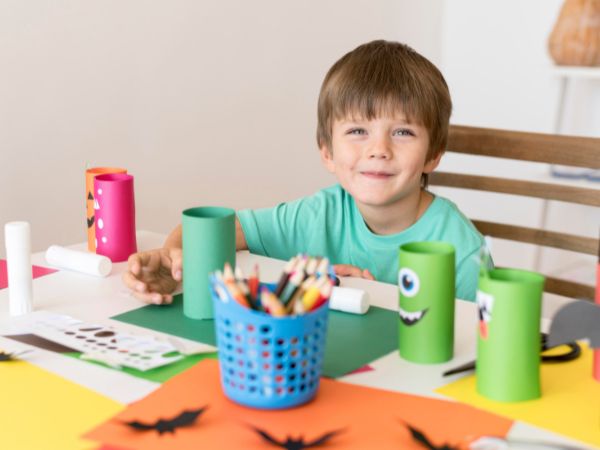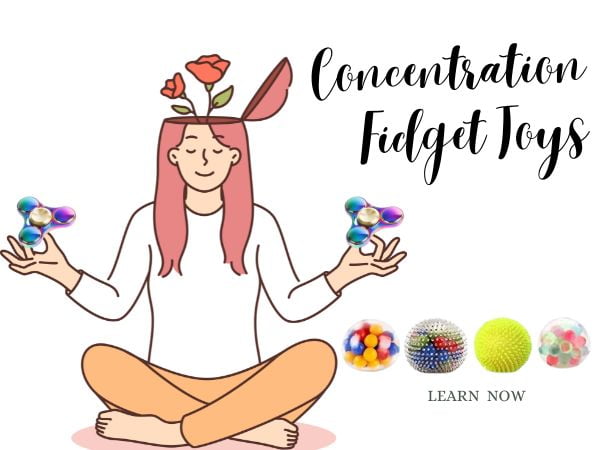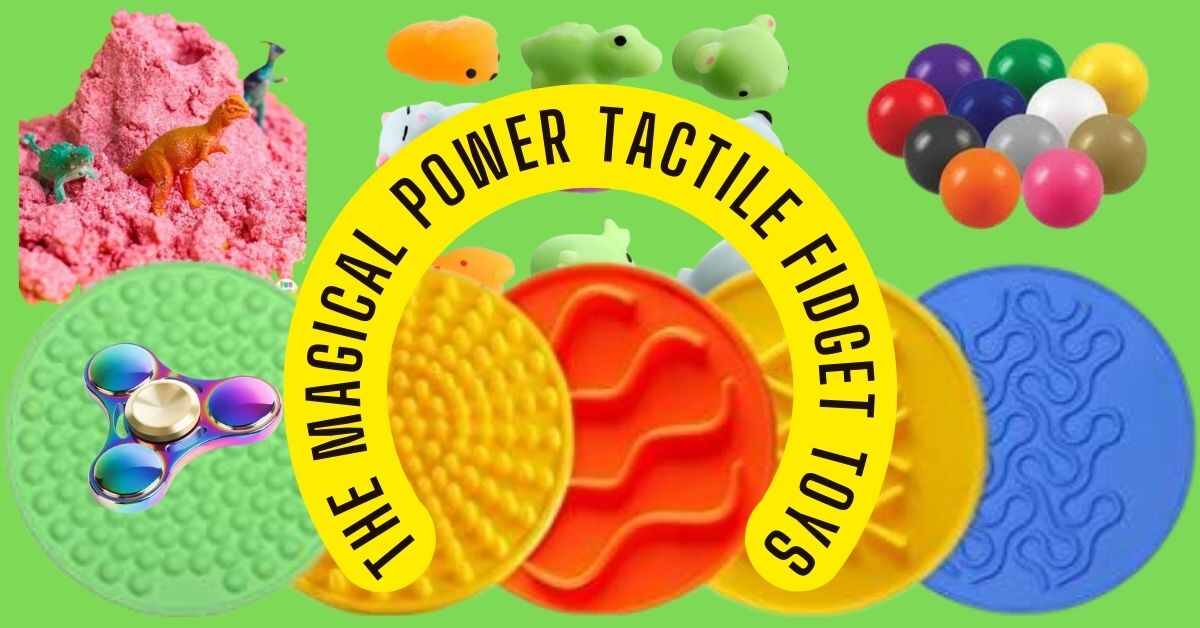In the field of dementia care, where every moment counts and every smile counts, innovative solutions are constantly sought to improve the lives of people who face cognitive challenges. One such notable innovation that is causing a stir is the launch of innovative dementia toys for adults that spark joy. These ingenious creations are not just toys; They are a means to unlock memories, spark joy, and foster relationships in the lives of people living with dementia.
In this blog post, we delve into the world of these transformative toys, exploring their unique features, benefits, and the heartwarming impact they can have on adults and their caregivers.
Table of Contents
1. Introduction
Dementia, a condition characterized by mental decline, memory loss, and decreased ability to perform daily activities, can be extremely challenging for both individuals and their families. As the condition progresses, living with dementia can become important to find ways to keep adults with dementia busy and happy.
Here come innovative dementia toys for adults, which offer a unique and effective way to liberate fond memories and create happy moments. In this article, we Explore the world of innovative dementia toys for adults that not only entertain but also create joy, boosting the quality of life of those affected by the condition.”

2. Understanding Dementia and its Challenges
Dementia is a complex neurological condition that affects memory, mental functioning, and daily living skills. It poses significant challenges for individuals and their loved ones, leading to feelings of loneliness and distress. As the condition progresses, individuals may struggle to recognize familiar faces, places, and memories. This is where innovative dementia toys for adults can have a transformative role.
3. What are some early signs of dementia?
Early signs of dementia can vary, but here are some common warning signs to watch out for:
- Subtle Short-Term Memory Changes:
- Difficulty with short-term memory.
- Trouble remembering recent events or where items were placed.
- Struggling to recall daily tasks or appointments.
- Difficulty Finding the Right Words:
- Trouble expressing thoughts or finding appropriate words.
- Stopping mid-sentence and being unable to continue.
- Challenges in communication.
- Changes in Mood:
- Mood swings, anxiety, or depression.
- Fearfulness or increased agitation.
- Shifts in personality, such as becoming more outgoing or withdrawn.
- Apathy and Withdrawal:
- Reduced interest in activities they once enjoyed.
- Social withdrawal or disinterest in social interactions.
- Absentmindedness and Confusion:
- Becoming forgetful about daily routines or tasks.
- Getting confused in familiar environments.
- Struggling to follow conversations or instructions.
4. How can I reduce my risk of developing dementia?
The following are evidence-based strategies to lower the probability of dementia:
- Be Physically Active Each Day:
- Engage in regular physical activity such as walking, jogging, swimming, or gardening.
- Any form of movement is better than none at all.
- Protect, Check, and Support Your Hearing:
- A 90% increase in the incidence of dementia can be attributed to hearing loss in middle age.
- Use hearing aids if needed and protect your hearing from loud noises.
- Stay Socially Active:
- Connect with family, friends, and your community.
- Virtual visits and activities count too!
- In later life, social isolation can raise the risk of dementia by 60% on average.
- Manage Medical Conditions:
- Work with your health-care provider to manage complex conditions like diabetes and obesity.
- These conditions can increase dementia risk.
- Quit Smoking:
- Even quitting or reducing smoking in later life can improve brain health and reduce dementia risk.
- Seek Support for Depression:
- Depression treatment and support improve mood, brain functioning, and allow you to address other risk factors.
- Drink Less Alcohol:
- Studies reveal that consuming over 12 standard drinks per week in middle age raises the risk of dementia by 20% on average.
- Examine possibilities for alcohol-free drinks.
- Protect Your Heart:
- Track and take care of your heart health and blood pressure.
- Heart health benefits the brain as well.
- Avoid Concussion and Traumatic Brain Injury:
- Steer clear of activities that put your brain at risk of harm.
- dementia toys for adults:
- Promoting physical movement and coordination can be achieved by exercises with dementia toys, manipulating tactile objects, or tossing a soft ball.
- A lowered risk of dementia and cognitive decline is linked to regular physical activity.
5. The Healing Power of Play: The Benefits of Dementia Toys For Adults
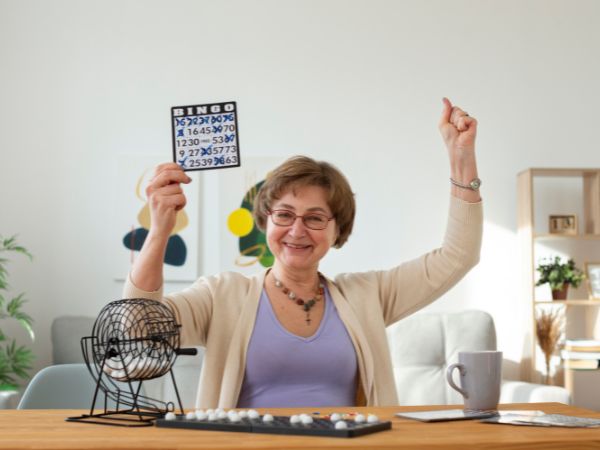
Play isn’t just for kids; It also holds great medicinal potential for adults. dementia toys for adults provide a creative medium for self-expression, sensory stimulation, and mental battle. They promote the general well-being of adults with dementia because they can evoke memories, evoke emotion, and promote a sense of edification.
6. Innovative Dementia Toys: A Glimpse of the Future
Advances in technology and psychology have led to pioneering dementia toys for adults. From inventive dementia toys to experiencing random changes such as frequency reality that recreate nostalgic environments and interactive toys that encourage mental dexterity, these toys provide a glimpse into the future of dementia care.
7. How do I know which toy is best for my loved one?
Choosing the right toy for your loved one with dementia can make a significant difference in their well-being and engagement. Lets see some considerations to choose:
- Cognitive Abilities: Assess their cognitive abilities. Are they still able to solve puzzles, play memory games, or engage in more complex activities? Choose toys that match their current cognitive level.
- Interests and Preferences: Consider their interests and hobbies. Did they enjoy certain activities before dementia? Look for toys related to those interests. For example, if they loved gardening, consider sensory toys with textures resembling soil or plants.
- Sensory Stimulation: Dementia-friendly toys often focus on sensory experiences. Seek for toys that offer a variety of hues, textures, and noises, and sounds. Soft fabrics, tactile materials, and soothing music can provide comfort.
- Safety and Simplicity: Opt for safe and easy-to-use toys. Steer clear of small parts that could choking hazards. Simple designs are often more effective because they reduce frustration.
- Familiarity: Choose toys that evoke positive memories. For example, a stuffed animal resembling a pet they once had can provide comfort. Familiarity can reduce anxiety.
- Social Interaction: Some toys encourage social interaction. Consider group activities or games that involve family members or caregivers. Social engagement is essential for emotional well-being.
- Adaptability: Look for toys that can adapt to changing needs. For instance, a memory book can be personalized with photos and stories, making it a versatile and meaningful choice.
8. A Closer Look at Select Innovative Dementia Toys
Let’s take a closer look at some of the star players in the world of Innovative Dementia Toys for Adults That Spark Joy:
| Toy’s Name | Features | Benefits |
| 1. Melodic Memories Radio | Plays sentimental music from different generations | Elicit memories associated with the songs encourage singing and movement |
| 2. Reminiscence Puzzle | Features images from the past, encouraging assembly | Stimulates cognitive function and fosters a sense of accomplishment |
| 3. Joyful Jigsaw | Vibrant, large pieces for easy handling and assembly | Enhances fine motor skills, promotes social interaction through collaborative play |
| 4. Sentimental Stuffed Friend | Soft, emits soothing sounds | Provides comfort, reduces anxiety, encourages sensory stimulation |
| 5. Memory Lane Paint Set | Complete the painting kit with guided templates and colors | Enables self-expression, serves as a conversation starter, engages visual and tactile senses |
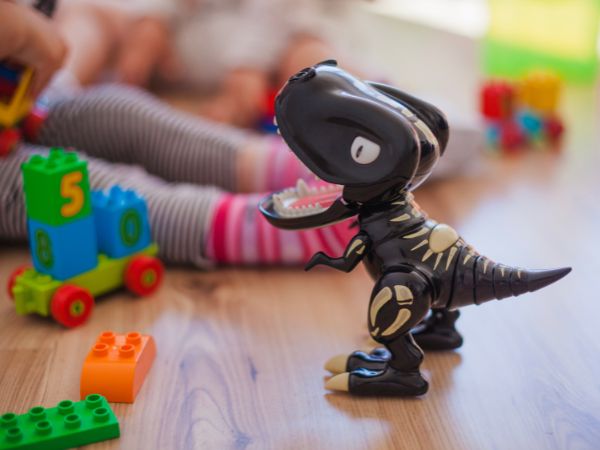
9. The Science Behind the Joy
There is science behind every laugh, smile, and happy moment. Innovative dementia toys for adults are based on research that highlights the positive impact of sensory stimulation and cognitive engagement on individuals with dementia. When the brain engages in pleasurable activities, the production of certain neurotransmitters increases, which improves mood and overall well-being.
10. 10 Must-Try Dementia Toys That Spark Joy
1. Music of Memories: Melodies of Joy
Music has the unique ability to evoke memories and evoke emotions. Musical dementia toys, such as personalized playlists and interactive tools, offer individuals the possibility to connect to their favorite tunes and relive favorite times.
2. Puzzle Therapy: Memories in Pieces
Puzzles awaken mental power and promote problem-solving ability. Specially designed dementia puzzles provide a satisfying way to stimulate mental activity in a proven way with large pieces and familiar pictures.
3. Life-like Doll Companions: The Comfort of Nurturing
Life-like dolls provide organization and emotional comfort. They can stimulate nurturing instincts and provide a sense of purpose, especially for individuals who have held the role of parent or caregiver in the past.
4. Interactive Digital Games: Virtual Adventures
Digital games for dementia patients that encourage mental agility and sensory activities provide interactive experiences. They transport individuals to virtual worlds, evoking positive memories and emotions.
5. Sensory Stimulants: Aromatherapy Delights
The smell and memory are intimately connected. Aromatherapy kits and scented clothing can reach individuals at different times and places, evoking happy memories.
6. Art Therapy Unleashed: Drawing Memories
Art therapy encourages self-expression and generalization. Dementia-qualified art kits and activities offer individuals the possibility to engage with colors, textures, and forms, unlocking hidden abilities and memories.
7. Vintage Kitchen Games: A Dish of Nostalgia
For those who enjoy cooking, vintage kitchen toys can evoke a sense of familiarity. Small hearths, utensils, and food patterns facilitate toilet experiences and social environments.
8. Gardening Therapy: Cultivating Connection
Horticulture awakens the senses and provides a connection with nature. Indoor garden kits with easy-to-manage plants provide a peaceful and fulfilling activity.
9. Building Blocks of Fondness: Architectural Play
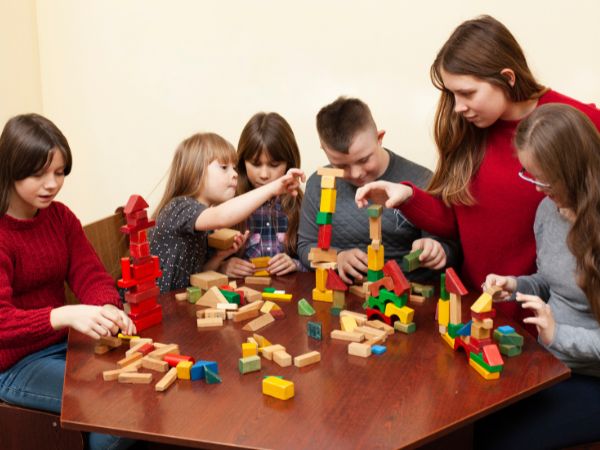
Architecture toys such as building blocks can stimulate mental awareness and generalization. Individuals are likely to recreate scenes from past actions or imagine new scenes, fostering a sense of accomplishment.
10. Going Back in Time: Memories Montage
The Memories Montage Kit allows individuals to create a staging of their life experiences. Explore photographs and memorabilia to stimulate conversation and memories.
11. Creating Lasting Relationships: Toys Enhanced Family Bonding
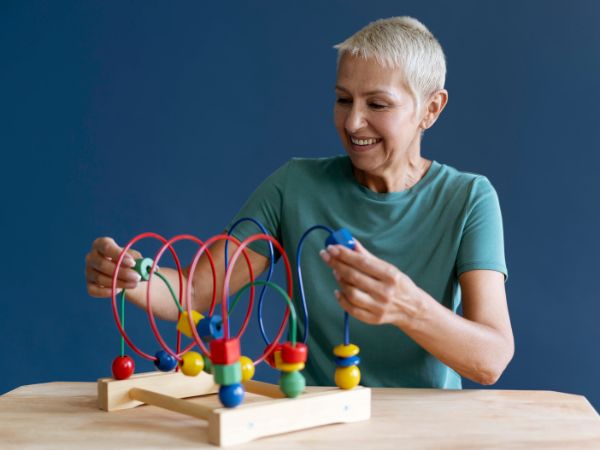
dementia toys for adults provide opportunities for meaningful interactions between individuals and their families. Playfulness generates warmth, laughter, and shared experiences, which can overcome the challenges of dementia.
12. Laughter is the Better Medicine: The Role of Humor
Humor has a unique ability to elevate morale and reduce stress. Incorporating an establishment component of humor into the achievements of playtime in playtime can create moments of joy and relaxation for playtime individuals.
13. Caring for Caregivers: Relieving Stress Through Play
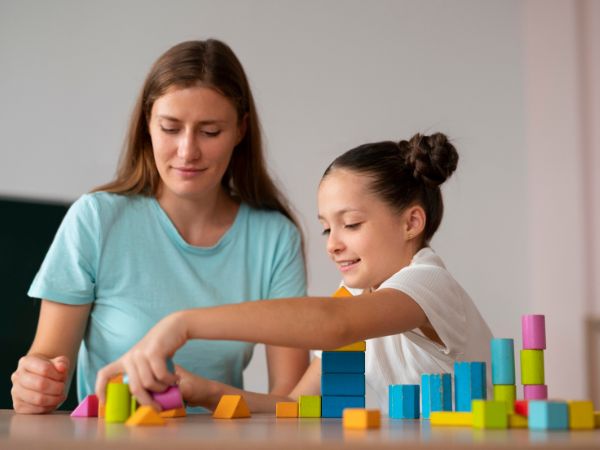
Caregiving can be emotionally and physically exhausting. Encouraging caregivers to participate in sports with dementia patients not only benefits patients but also provides relaxation and stress relief.
14. Incorporating dementia toys into care facilities
Dementia care facilities can incorporate innovative toys into their programs to promote the overall well-being of residents. Group activities, workshops, and one-on-one sessions can be adapted to include games to evoke memories and feelings.
15. What are some other ways to help people with dementia?
Supporting individuals with dementia involves compassion, patience, and understanding. Here are some valuable tips to enhance their well-being:
- Don’t Argue: Avoid arguing with a dementia patient. Their ability to reason is impaired, and arguing can lead to frustration. Instead, divert their attention or provide gentle explanations without confrontation.
- Allow Independence: Encourage independence whenever possible. Let them perform daily tasks without unnecessary assistance. Use visual cues to guide them through activities like setting the table or dressing.
- Positive Interactions: Focus on positive interactions. Smile, hug, and remind them that they are loved. Show appreciation for their help and involve them in activities. Prioritize emotional connections.
- Create a Calm Environment: Reduce noise, clutter, and distractions. A calm environment can alleviate anxiety and improve their overall well-being.
- Routine and Familiarity: Establish a consistent routine. Familiarity provides comfort and reduces confusion. Use memory aids like calendars or clocks to reinforce daily schedules.
- Engage Their Senses: Sensory stimulation is essential. Use scents, textures, and soothing music. Activities like gardening, baking, or listening to familiar songs can evoke positive memories.
- Reminisce: Create a life story book with photos and stories. Reminiscing about their past can be comforting and provide a sense of identity.
- Stay Active: Physical and mental exercise are crucial. Encourage walks, light exercises, and engage their minds with puzzles, games, or reading.
- Monitor Nutrition: Ensure they have a balanced diet. Hydration is vital.
- Seek Support: Caregiving can be challenging. Seek support from support groups, respite care, or professional caregivers. Take care of your own well-being too.
16. The Future of Dementia Care: Innovations to Watch
The field of dementia care continues to evolve. From personal AI companions to immersive multi-sensory adventures, the future holds promising innovations that will enrich life with dementia even more.
17. Unlocking Joyful Moments: Conclusion
The power of innovative dementia toys for adults is their ability to stimulate fond memories and evoke joy in adults’ lives. These toys provide more than just entertainment; They provide avenues for self-expression, connection, and psychic sensation. By embracing the therapeutic potential of play, we can create moments of joy for both individuals and their caregivers that can brighten the journey of people living with dementia.
18. Frequently Asked Questions (FAQs)
1. How do dementia toys work?
Dementia toys are specially designed to appeal to the senses and mental abilities of individuals, stimulate memories and emotions and provide a source of joy and pleasure.
2. Are these toys suitable for all levels of dementia?
Yes, there are toys designed for different levels of dementia. It is important to choose toys with individual mental and sensory needs.
3. Can dementia toys replace human interaction?
Yes, dementia toys add to the activities, but human interaction is still important. These toys are meant to complement dialogue and provide additional avenues for relationships.
4. Are there DIY alternatives to dementia toys?
Absolutely! Many DIY dementia toys include easy craft projects and creative activities that can be personalized according to the individual’s preferences.
5. Where can I find unique dementia toys?
Unique dementia toys can be found online, in specialist shops, or made through various DIY projects. The toys must match the interests and needs of the individual.

